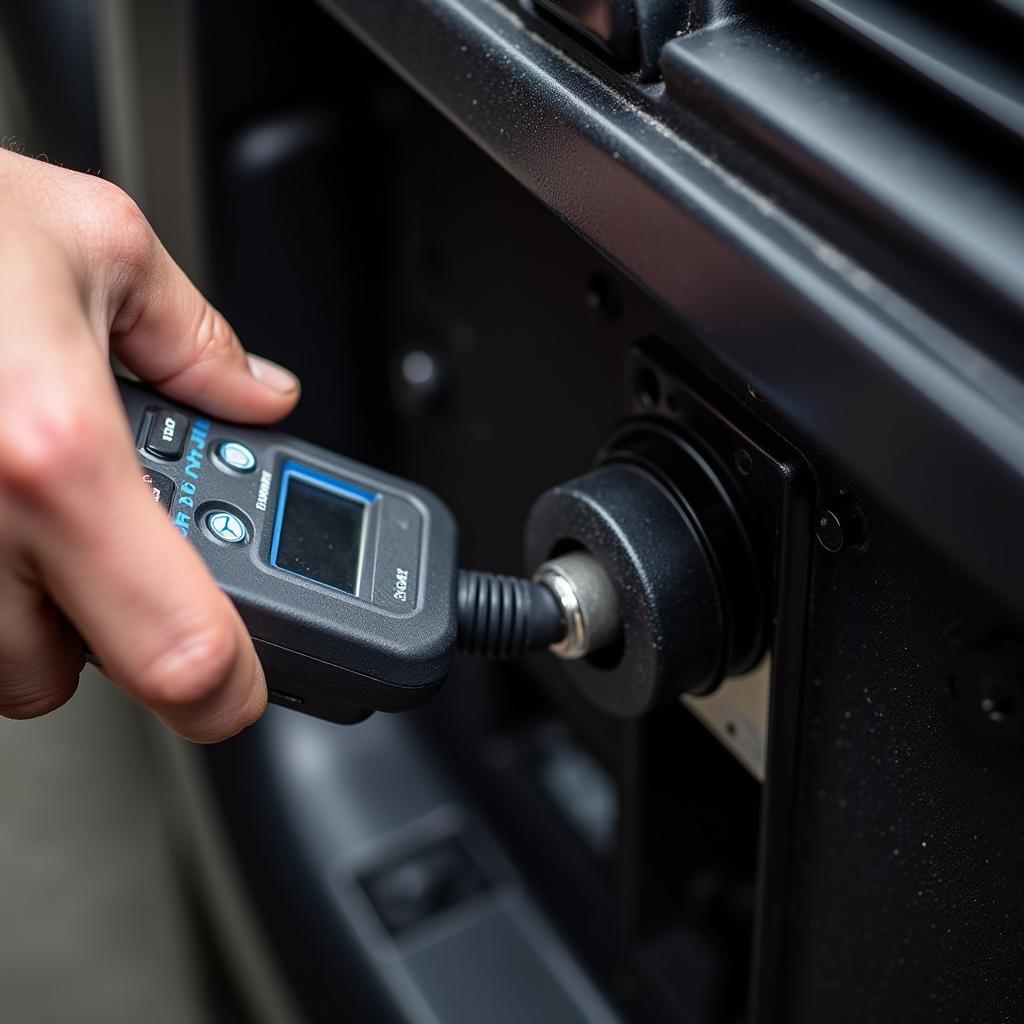You dropped your car off at the garage weeks ago, expecting a quick fix, but now it’s been four weeks and the mechanics are still “running diagnostics.” Frustration mounts as you wonder why it’s taking so long to figure out what’s wrong with your car. Don’t worry, we’re here to shed some light on the situation and help you navigate this frustrating process.
Understanding Car Diagnostics and Repair Timeframes
Modern vehicles are complex machines with intricate electrical systems and computerized components. When a problem arises, pinpointing the exact cause often requires more than just a visual inspection. This is where car diagnostics come in.
Car diagnostics involve using specialized equipment to read trouble codes stored in your vehicle’s computer, analyze sensor data, and test various systems. While this process can be time-consuming, it’s essential for accurate diagnosis and effective repairs.
Several factors can influence the time it takes to diagnose and repair a car issue, including:
- The complexity of the problem: A simple sensor replacement is a far cry from diagnosing an intermittent electrical fault or a complex engine issue.
- Parts availability: If the diagnosis reveals a faulty part that needs to be ordered, the repair timeframe will be extended depending on the part’s availability.
- Garage workload: Busy garages often have a backlog of repairs, which can lead to delays even if your car’s diagnosis is relatively straightforward.
 Car Diagnostic Equipment in Use
Car Diagnostic Equipment in Use
Why is My Car Stuck in Diagnostics for So Long?
While four weeks might seem excessive, it’s not entirely unheard of, especially if your car’s issue is proving difficult to diagnose. Here are some possible reasons why your car might be stuck in diagnostics for an extended period:
1. Intermittent Problems: Intermittent problems, those that come and go without a clear pattern, are notoriously difficult to diagnose. Mechanics may need to run multiple tests under different conditions to replicate and pinpoint the issue.
2. Multiple Fault Codes: Sometimes, a single underlying problem can trigger a cascade of fault codes in the car’s computer. Mechanics need to carefully analyze these codes and determine the root cause to avoid unnecessary repairs.
3. Electrical Gremlins: Electrical problems can be incredibly challenging to diagnose. Tracking down a short circuit, a faulty sensor, or a wiring harness issue often requires meticulous inspection and testing.
4. Specialized Expertise: Certain car problems might require specialized knowledge or equipment that your chosen garage may not have in-house. In such cases, they might need to consult with specialists or send your car to a different facility.
What to Do When Your Car is Stuck in Diagnostic Limbo
It’s perfectly reasonable to feel frustrated when your car is stuck in the shop for weeks on end. Here’s how to approach the situation proactively:
1. Communicate Clearly: Regularly communicate with the garage and request updates on your car’s status and the diagnostic process. Don’t hesitate to ask questions and clarify any technical terms you don’t understand.
2. Request a Detailed Explanation: Ask the mechanic to explain the specific diagnostic steps they’ve taken, the findings so far, and the potential causes they’re investigating. This will help you understand the complexity of the issue and the reasons for the delay.
3. Consider a Second Opinion: If you’re unsatisfied with the garage’s communication or progress, consider getting a second opinion from another reputable mechanic.
4. Document Everything: Keep detailed records of all communication with the garage, including phone calls, emails, and invoices. This documentation will be helpful if any disputes arise later on.
Preventing Diagnostic Delays in the Future
While you can’t entirely eliminate the possibility of future diagnostic delays, proactive car maintenance can significantly reduce the risk:
- Follow your car’s recommended maintenance schedule: Regular oil changes, fluid top-ups, and inspections can prevent small problems from escalating into major issues.
- Address warning lights promptly: Ignoring warning lights on your dashboard can lead to more significant problems and complicate diagnostics.
- Choose a reputable mechanic: Establish a relationship with a trustworthy mechanic who knows your car’s history and can provide reliable service.
Conclusion
Having your car stuck at the garage for weeks while they’re “running diagnostics” can be incredibly frustrating. By understanding the intricacies of car diagnostics, communicating effectively with your mechanic, and staying proactive with car maintenance, you can navigate these situations more confidently and minimize the chances of lengthy delays in the future.

Leave a Reply